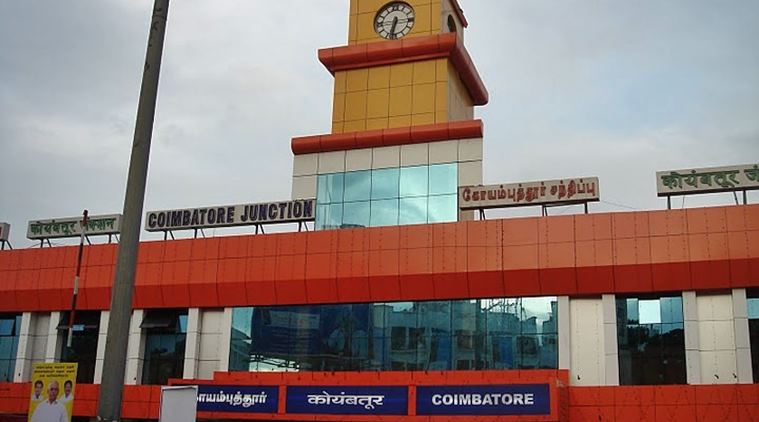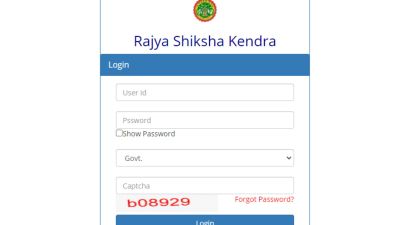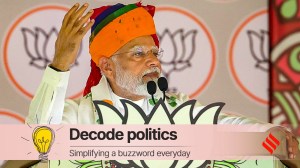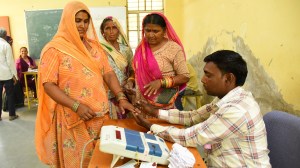- India
- International
Coimbatore now Koyampuththoor: Cities get new Tamil names
The impact of changing over 1,000 names officially in government records will not only be expensive, but laborious too; signage will be changed on highways and railway stations, corrections will be made on government records, postal and attached services etc.
 The decision also left the Tamil literary circle divided in its opinion. (Source: Wikimedia Commons)
The decision also left the Tamil literary circle divided in its opinion. (Source: Wikimedia Commons)
To impress upon the significance of Tamil phonetics, the AIADMK government has issued a government order amending the English spelling of 1,018 cities and places or giving them a totally new official name. For instance, the spelling of Coimbatore, the second largest city in the state, has been changed to ‘Koyampuththoor’. Tuticorin or Thoothukudi to ‘Thooththukkudi,’ and Triplicane and Egmore, to localities in Chennai city, to Thiruvallikkeni and Ezhumboor (meaning the seventh village, as it was the seventh village bought by the British), respectively.
The impact of changing over 1,000 names officially in government records will not only be expensive, but laborious too; signage will be changed on highways and railway stations, corrections will be made on government records, postal and attached services etc.
The decision also left the Tamil literary circle divided in its opinion.
Theodore Bhaskaran, a historian familiar with the state’s modern history, said the decision was “totally unwarranted” during a pandemic and blamed the government for not taking railways and the postal department in confidence before going for this massive project.

“These two agencies who have a larger stake in addresses and place names were not consulted when they changed. Universally, there is a rationale about addresses… all that has been destroyed here. In some instances, the original meaning itself has changed. This will have an impact, even on elections. Do they have an idea about the significance of addresses and place names?” Bhaskaran asked.
Read | Chennai localities get new names: Here is the full list
Nandita Krishna, a Chennai-based historian who has authored books on the history of Madras and the significance of preserving local names, said the government’s decision was totally beyond comprehension.
“In these times, should we worry about spelling of places or Covid? In theology, the word Krishna is written with certain dots and character features on each letter. But is that a matter of concern for a postman or an ordinary person? In my childhood, we used to come to ‘Madrasappattinam’ during holidays, later I started living in ‘Madras,’ and it has become ‘Chennai’ now. I think this change is all about fresh money, employment, and expenditure to change all these names on records and roads,” she said.
But K Pandiarajan, Minister for Tamil Official Language and Tamil Culture, told The Indian Express that there were many factors that had delayed these corrections. “It was a long-pending project. Major challenge was that it required correction in revenue, registration and local body departments, a massive task before us. There used to be strong resistance from these departments. Like Bombay became Mumbai and Madras became Chennai and Trivandrum became Thiruvananthapuram, it was important to preserve our native language and expressions in our place names and spellings,” he said.
Read | Memes flood social media as Tamil Nadu changes English spellings of over 1000 places
Pandiarajan said both the postal department and railways would have to change their system as well. The Central government was taken in confidence before it was implemented, he said.
This project has been underway since 2018, when it was first announced. After district administrations had selected 1,018 place names and submitted them to the government with new spellings as per Tamil pronunciation, the government sent it to Tamil professors and writers in each district seeking their final approval. Of the 1,018 name changes, 647 spellings were decided by officials and 371 were amended or changed by Tamil experts.
While Pandiarajan claimed the government’s move was to bring in the local, native context of names, which were largely ignored by British, he pointed to two changes in which not only the spelling but the name itself were changed: Triplicane in Chennai changed to Thiruvallikkeni (even though it was originally Thiru-alli-keni, named after the tank of the white lily according to historian Nandita Krishna) and Tuticorin or Thoothukudi changed to Thooththukkudi.
Read | Tamil Nadu localities get phonetic makeover with changes in English spellings
Many were also surprised at the new spellings of Thooththukkudi and Koyampuththoor with an added “th.” V Jayadevan, Tamil professor in the University of Madras, who was part of the expert panel that amended names of places, said their objective was to trace and correct discrepancies between Tamil names and English scripts. “We weren’t translating but transliterating… For instance, against the spelling of Karaikudi, it is pronounced in Tamil as ‘Kaaraikkudi.’ These changes would help foreigners to read the place names correctly,” he said.
Even as historians Baskaran and Krishna weren’t pleased with the government move, prominent Tamil writer Perumal Murugan said he was happy for this change. “I noticed some errors, I hope they will correct those mistakes. But generally, I think it was important to preserve spellings in line with the local pronunciation… When we could spell our names the way we pronounce it, we should spell places the way we pronounce them. I hope some mismatches with certain names, for instance, the idea of “oor” (village, native), will also be corrected,” Murugan said, pointing out the spelling of ‘Koyampuththoor’ which ends with an “oor” at the end while the spelling of Thanjavur with a similar “oor” meaning hasn’t been changed yet.
Read | US report on religious freedom lists protests against CAA, Article 370
Dr S Balusami, Tamil scholar and a retired professor of Madras Christian College, said protecting the purity of native language was very crucial. “But remember not only English but Sanskrit too had colonised and altered Tamil language. There are many places with Sanskrit names even though originally they had Tamil names. Thirumaraikkaadu, a place mentioned in Thevaram (Saiva devotional poetry), is now known in a Sanskrit name, Vedaranyam. Why not we reclaim the original name? I agree with name changes but it should be considering changes due to Sanskrit too. We should correct many such mistakes, such as the British spelling of Cuddalore even as it is pronounced in Tamil as Kadaloor, or like the spelling of Rama, when we pronounce it as Raama,” he said.
While the spelling of Mylapore was changed by officials to Mayilappoor, the final spelling approved by experts was Mayilaappoor, with an extra ‘a’. Sivaganga to Sivagangai, Dharmapuri to Tharumapuri, Poonamallee to Poovirunthavalli are a few other changes. Spellings of Tondiarpet in Chennai city, one of the regions with maximum Covid-19 cases, has been changed to Thandaiyaarpettai, Saidapet has been changed to Saithaappettai and Vellore, north of Tamil Nadu, has been changed to Veeloor, as it is pronounced in Tamil.
Apr 23: Latest News
- 01
- 02
- 03
- 04
- 05






































